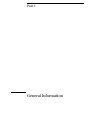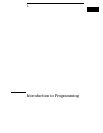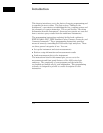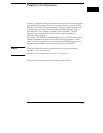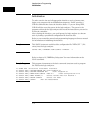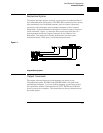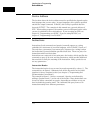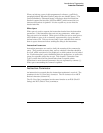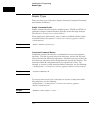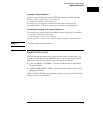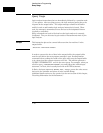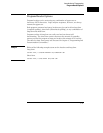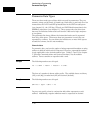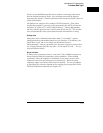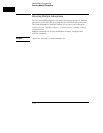
When you look up a query in this programmer’s reference, you’ll find a
paragraph labeled "Returned Format" under the one labeled "Query." The
syntax definition by "Returned format" will always show the instruction
header in square brackets, like [:SYSTem:MENU], which means the text
between the brackets is optional. It is also a quick way to see what the
header looks like.
White Space
White space is used to separate the instruction header from the instruction
parameters. If the instruction does not use any parameters, white space
does not need to be included. White space is defined as one or more spaces.
ASCII defines a space to be a character, represented by a byte, that has a
decimal value of 32. Tabs can be used only if your controller first converts
them to space characters before sending the string to the instrument.
Instruction Parameters
Instruction parameters are used to clarify the meaning of the command or
query. They provide necessary data, such as: whether a function should be
on or off, which waveform is to be displayed, or which pattern is to be looked
for. Each instruction’s syntax definition shows the parameters, as well as the
range of acceptable values they accept. This chapter’s "Parameter Data
Types" section has all of the general rules about acceptable values.
When there is more than one parameter, they are separated by commas (,).
White space surrounding the commas is optional.
Instruction Terminator
An instruction is executed after the instruction terminator is received. The
terminator is the NL (New Line) character. The NL character is an ASCII
linefeed character (decimal 10).
The NL (New Line) terminator has the same function as an EOS (End Of
String) and EOT (End Of Text) terminator.
Introduction to Programming
Instruction Terminator
1–7



